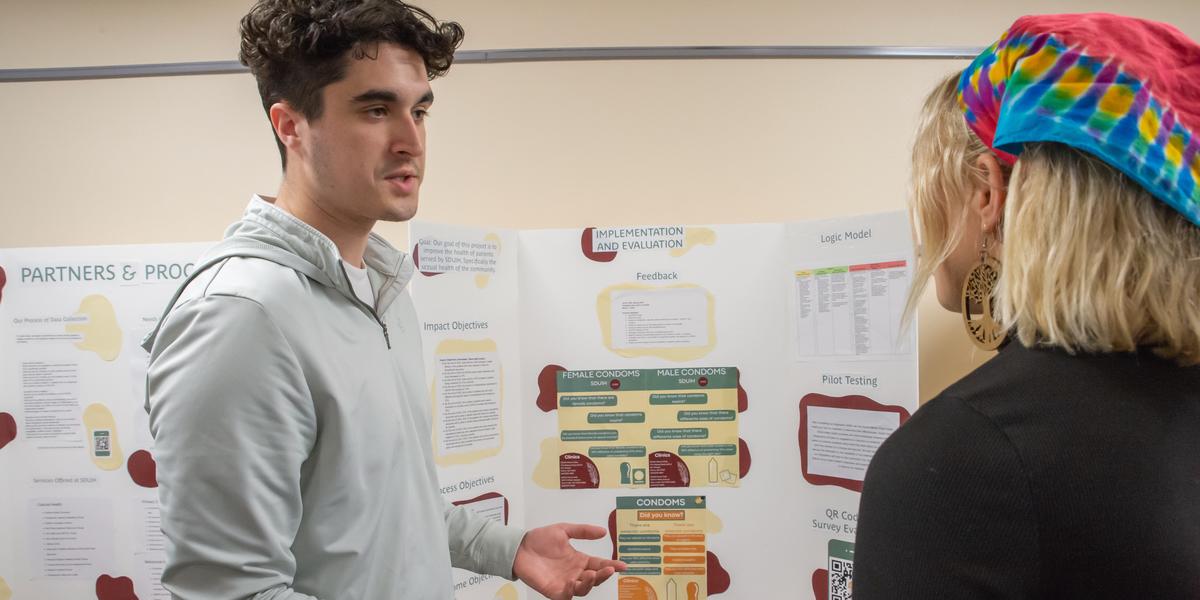Faculty at the University of Minnesota Duluth were recently presented with a National Institute of Health (NIH) award. The new three-year, $381,149 research grant, called “Use of Ecological Momentary Assessments to Evaluate Drinking in Native Women,” will partner with Native American communities and UMD students to provide information and create informational materials about the health risks of alcohol use.
At UMD, dozens of students are working with Jessica Hanson and Amy Versnik Nowak, both associate professors in the public health program, and Rebecca Gilbertson, an associate professor in the Department of Psychology.
Through the grant, Native American communities and researchers are using a technique called ecological momentary assessment to collect data. The technique involves the study of people's thoughts and behavior in their daily lives.
One of the other aims of the grant is to include undergraduate students in the research during two UMD public health courses—"Public Health Communication" and "Community Health Methods." Students will work with faculty and tribal partners to develop and share information. They will collect needs assessment data in order to develop infographics, social media posts, and other aids. Their task is to communicate the project aims and to report data results. They will then test and evaluate their creations, which will later be shared by the community partners, who ‘own’ the final product.
Previously, UMD students worked with community partners, such as South Dakota Urban Indian Health, to develop infographics on specific health needs. As one UMD public health student, Chris Mahady ‘24 (pictured above) said, it was valuable to work together as equals. “One thing I learned about working with communities (for the class) was how important it is to understand the health literacy of each community so that you can tailor your information to them,” he said.
The grant’s principal investigator, Jessica Hanson, says that this new funding will allow faculty to expand connections with these community partners in order to bring real-world, community-engaged research to undergraduate students.
Feature photo of Chris Mahady by Ladona Tornabene
